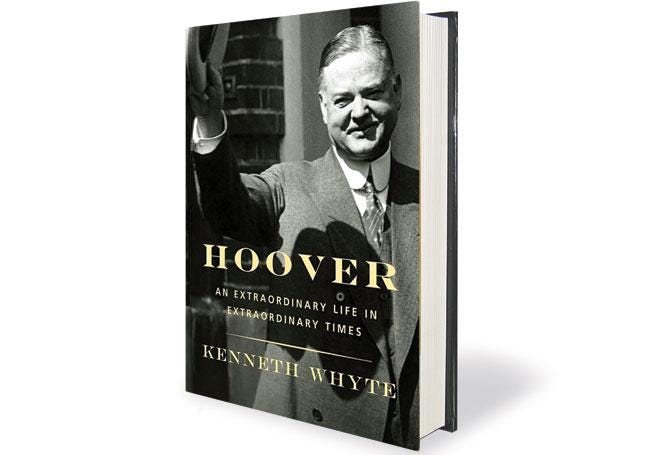Herbert Hoover typically ranks fairly low among U.S. presidents. It’s certainly hard to consider his presidency a success when it coincided with the Great Depression.
For some time, a myth persisted that Hoover was a do-nothing, laissez faire president who stood idly by while the economy collapsed. That’s blatantly false, and historians have been correcting the record on that. He may not have taken the correct courses of action as president, but doing nothing was not in his nature.
At his core, Herbert Hoover was a hands-on problem solver, a trait he demonstrated during World War I when he, as a civilian, took it upon himself to organize food relief for Belgium’s entire population of 7.5 million people.
The German army had invaded and occupied Belgium, and among the tragic results, shipments stopped coming into a country that imported eighty percent of its food supply. The Germans consumed much of what was on hand, and they felt no obligation to feed the occupied population.
The British believed the Germans were responsible for feeding its captured territories, and the Germans blamed the British navy for blocking shipments. Meanwhile, 7.5 million people faced the prospect of starvation.
According to Kenneth Whyte in his biography Hoover, Herbert Hoover was living in London at the outset of World War I, and he met an American engineer, Millard Shaler, who was tasked with shipping 1,500 tons of cereals into Belgium. British trade officials wanted the neutral United States to supervise the delivery.
Washington, sadly, was slow to act, and $100,000 worth of food wasted away on a dock. A newspaper headline at the time read, “U.S. red tape starves Brussels.”
Hoover, Whyte writes, “was as galvanized by Belgium’s distress as he was furious at Washington’s foot dragging.”
So, Hoover developed a plan. With the support of U.S. Ambassador Walter Page, he met with various officials over the course of four days to discuss the situation and what could be done. Issues ranged from dietary requirements to difficulties of wartime shipping. The main challenges would be convincing the British to allow the food to be shipped into enemy territory and preventing the Germans from seizing the food for themselves.
The cold-hearted militaristic perspective was that if Belgium starved, the citizens would revolt and thus divert the attention of the German forces, thereby helping the Allies. To counter this, Hoover proposed a public relations campaign to elicit sympathy for the suffering nation, and that was merely one facet of the overall plan.
Hoover drafted a charter for the Committee for the Relief of Belgium (CRB). Based in London and chaired by Hoover, the organization would be private, neutral, and run by volunteers. Its officers were to be men with relevant commercial experience also working for free, ensuring that the money raised actually went toward the mission of feeding Belgium.
The CRB would fundraise from public and private sources alike, purchase food from different countries, and ship the food to Rotterdam and then into Belgium. A Belgian committee would handle the distribution from there.
Hoover insisted on strong centralization within the organization, and he believed a monopoly would be most effective, rather than diluting relief efforts among numerous well-meaning organizations, none of which would be vigorous enough to accomplish the monumental job.
Whyte notes that the CRB was not the first international humanitarian relief effort, but it possessed an unprecedented scope.
“The aim of the CRB was to provide almost the entire food supply for a nation of 7.5 million people, indefinitely. Hoover, representing a neutral country, intended to move massive supplies of food from the capital of one belligerent country (London) to the capital of a captive country (Brussels) occupied by their mutual enemy (Berlin). He would manage all of this in an atmosphere of war-bred suspicion and hate, and despite the disruption of conventional transportation and commercial activity in what was already shaping up to be the most destructive war in history,” Whyte says.
He continues, “No humanitarian venture, public or private, had ever approached Hoover’s initiative in scale or audacity.”
As CRB chair, Hoover acquired a unique form of diplomatic immunity. “Perhaps no other individual in the world moved so easily across enemy lines during the Great War,” Whyte says.
Hoover was also willing to sacrifice his personal fortune for the cause. “Let the fortune go to hell,” he’s quoted as saying.
There were, of course, difficulties. Costs exceeded projections, with a monthly $1 million tab ballooning into $4 million a month, and then $6 million a month. In 1915, the CRB expanded its scope to include feeding an additional 2 million people in Northern France.
Hoover sought government subsidies, which weren’t so easy to come by. The British believed relief efforts would ultimately just help the enemy and prolong the war, and the Germans weren’t eager to help either. Hoover realized that appealing to the combatants’ better natures wasn’t an effective strategy in this situation, so he played on their fears, telling both sides whatever he thought they needed to hear. Hoover saw his job as keeping Belgium fed, and if he had to bend the truth to accomplish that goal, so be it.
At one point, Hoover toured Belgium to observe the situation firsthand. He described the country as “a land of imprisonment” and said the Belgians were “surrounded by a ring of steel and utterly unable by any conceivable effort to save themselves.”
However, Hoover couldn’t bring himself to look at the food lines or directly interact with anyone receiving aid.
Whyte quotes an unnamed U.S. official as saying, “He told of the work in Belgium as coldly as if he were giving statistics of production. From his words and his manner he seemed to regard human beings as so many numbers. Not once did he show the slightest feeling.”
Reticent though Hoover was, those human feelings apparently did exist deep within, and he was particularly bothered by the plight of hungry children. “It is difficult to state the position of the civil population of Belgium without becoming hysterical,” Hoover said.
It’s true that Hoover was no saint. He could be rather thin-skinned and vain in the face of criticism, often resorting to ad hominem to defend himself. In any situation like this, it’s easy to take the cynical view and question a person’s motives in undertaking such a mission, especially when the person later goes into politics.
But the bottom line is that the CRB succeeded in saving many from starvation.
Hoover chaired the CRB for thirty months, until the United States entered World War I and he could no longer pass for a neutral entity. During those thirty months, according to Whyte, the CRB spent $200 million and shipped 2.5 million tons of food. Dutch and Spanish authorities then took over its operations, and by the war’s end, the organization had spent $865 million in total, with only $4 million of that going to administrative overhead.
Without Hoover’s intervention, the situation in Belgium could have been so much worse.
Whyte writes that Hoover’s “vision and experience enabled him to foresee the demands of industrial-scale humanitarianism in an age of industrialized global war.”
Hoover may not have been the man America needed during the Great Depression, but he was the man Belgium needed during World War I.






